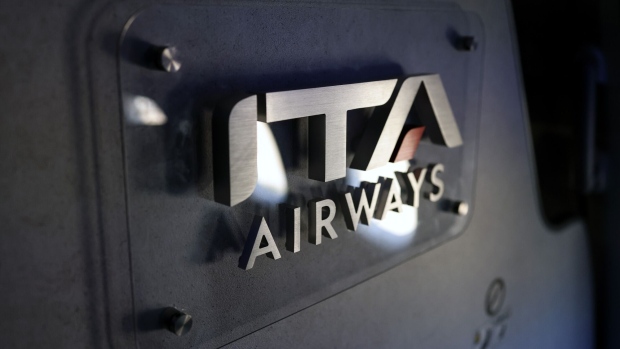Jan 23, 2024
Lufthansa’s €325 Million ITA Airways Deal Gets In-Depth EU Probe
, Bloomberg News

(Bloomberg) -- Deutsche Lufthansa AG’s €325 million ($353 million) investment into Italian carrier ITA Airways faces an in-depth investigation from European Union deals watchdogs, amid concerns over competition on long- and short-haul routes.
The European Commission said on Tuesday it set a provisional deadline of June 6 to decide whether to block the deal or approve it with or without conditions.
“We want to further assess the transaction and ensure that the acquisition of ITA does not reduce competition in short-haul and long-haul traffic and that it will not lead to higher prices, less capacity or lower quality for passenger air transport services in and out of Italy,” the EU’s Competition Commissioner Margrethe Vestager said in a statement.
As part of a deal announced on May 25, Lufthansa plans to invest €325 million via a capital increase for a 41% stake, with the Italian government contributing an additional €250 million. Lufthansa also has an option to purchase all remaining shares at a later date.
In January, Lufthansa attempted to head off a deeper probe into its plans by offering concessions to regulators. Italian Finance Minister Giancarlo Giorgetti had earlier said that the EU is likely to embark on a so-called phase 2 review, adding several more months to the investigation process.
Potential remedies to solve the EU’s concerns, previously reported by Bloomberg, include the disposal of slots at Milan Linate airport, which is dominated by ITA and the wider Lufthansa group, encompassing regional carriers such as Swiss, Brussels Airlines and Austrian.
On Tuesday, Ryanair Holdings Plc chief executive officer Michael O’Leary said his firm will emerge as a winner from rival Lufthansa’s proposed investment, as the Irish low-cost specialist adds Italian routes and takes up slots the two carriers relinquish under the deal.
Lufthansa’s proposed deal marks the latest attempt to resurrect the ailing Italian carrier, which officially ceased operations in 2021. A scaled-back version remained under government ownership and has soaked up billions of euros in state support since then.
©2024 Bloomberg L.P.






